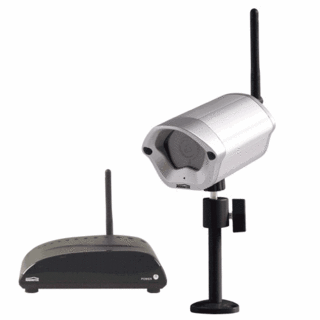Chatrooms used for sharing hints and tips in growing business of ID theft
Published:
26 July 2003 y., Saturday
Thieves are using chat rooms to sell stolen credit card details and advise others how to hack websites containing credit information, security experts have warned.
Groups using internet relay chat (IRC) are playing a growing role in online credit card fraud.
A report by the Honeynet Project, which monitors criminal activity on the internet, shows that online thieves are becoming increasingly sophisticated. The credit card details are not only used to purchase products but to clone the card owner's identity.
In order to monitor and record this activity, the Honeynet researchers set up computer systems, called 'honeynets' or 'honeypots', intended to be easy targets for hackers. The researchers then tracked the hackers to the IRC channels.
Dr Bill McCarty and his students at Azusa Pacific University monitored activities on more than a dozen IRC channels relating to credit card fraud after a hacker infiltrated one of their traps.
He warned that such criminal activity is not confined to the US. "We saw people from the UK in these rooms trading information," he told vnunet.com.
The software programs used in these rooms can systematically search out vulnerable websites containing credit information, determine which bank issued a card, harvest the three-digit card verification number and even let thieves determine the available credit card limit.
They can check a card number's validity and personal information about its owner.
In one IRC chat group a user was selling credit card numbers for 50 cents to $1 each, while another wanted lessons on cracking online sites containing credit card information.
But this is only the tip of the iceberg of the growing problem of identity theft, the cost of which runs into millions every year.
Over the past year in the US at least seven million people have fallen victim to identity theft of some sort, according to a survey by analyst Gartner.
A report from the UK Fraud Advisory Panel said that the number of identity thefts in the UK has grown from 27,270 in 2001 to 42,029 last year, costing victims an estimated £62.5m annually and the UK economy £1.3bn a year.
Šaltinis:
vnunet.com
Copying, publishing, announcing any information from the News.lt portal without written permission of News.lt editorial office is prohibited.
The most popular articles
Software company announced new structure_ of it_s business.
more »
 Just a few weeks ago, the world's tiniest video camera was as small as a grain of rice. Today, the world's NanoEst camera is even smaller.
more »
Just a few weeks ago, the world's tiniest video camera was as small as a grain of rice. Today, the world's NanoEst camera is even smaller.
more »
 During the experiment two research groups managed to overcome a symbolic 100 TB/s optical fiber data transmission speed limit.
more »
During the experiment two research groups managed to overcome a symbolic 100 TB/s optical fiber data transmission speed limit.
more »
 Apple’s long–awaited online storage service for iTunes could be named iCloud, if only rumours are to be believed.
more »
Apple’s long–awaited online storage service for iTunes could be named iCloud, if only rumours are to be believed.
more »
 The founders of video-sharing site YouTube have bought bookmarking service Delicious from Yahoo.
more »
The founders of video-sharing site YouTube have bought bookmarking service Delicious from Yahoo.
more »
 The successful raid by hackers on Sony’s PlayStation Network is already being ranked among the biggest data thefts of all time.
more »
The successful raid by hackers on Sony’s PlayStation Network is already being ranked among the biggest data thefts of all time.
more »
 Apple has denied that its iPhones and 3G iPads have been secretly recording their owners' movements.
more »
Apple has denied that its iPhones and 3G iPads have been secretly recording their owners' movements.
more »
 Customers who have waited nearly 10 months for the white version of the iPhone 4 won’t have to wait much longer. The Great White iPhone 4 is finally here.
more »
Customers who have waited nearly 10 months for the white version of the iPhone 4 won’t have to wait much longer. The Great White iPhone 4 is finally here.
more »
 Researchers at Georgia Tech University are teaching a robot the basics of dialogue. Named "Simon", the robot has already been taught how to attract a person's attention but eventually, it's hoped he'll be able to interact and converse with humans in daily life.
more »
Researchers at Georgia Tech University are teaching a robot the basics of dialogue. Named "Simon", the robot has already been taught how to attract a person's attention but eventually, it's hoped he'll be able to interact and converse with humans in daily life.
more »
 3D? Terribly lame when it's tossed into devices as a bullet point feature. Trimensional for iPhone takes a picture of your face and maps your mug in a 3D model.
more »
3D? Terribly lame when it's tossed into devices as a bullet point feature. Trimensional for iPhone takes a picture of your face and maps your mug in a 3D model.
more »
 The European Union is to investigate whether internet service providers (ISPs) are providing fair access to online services.
more »
The European Union is to investigate whether internet service providers (ISPs) are providing fair access to online services.
more »